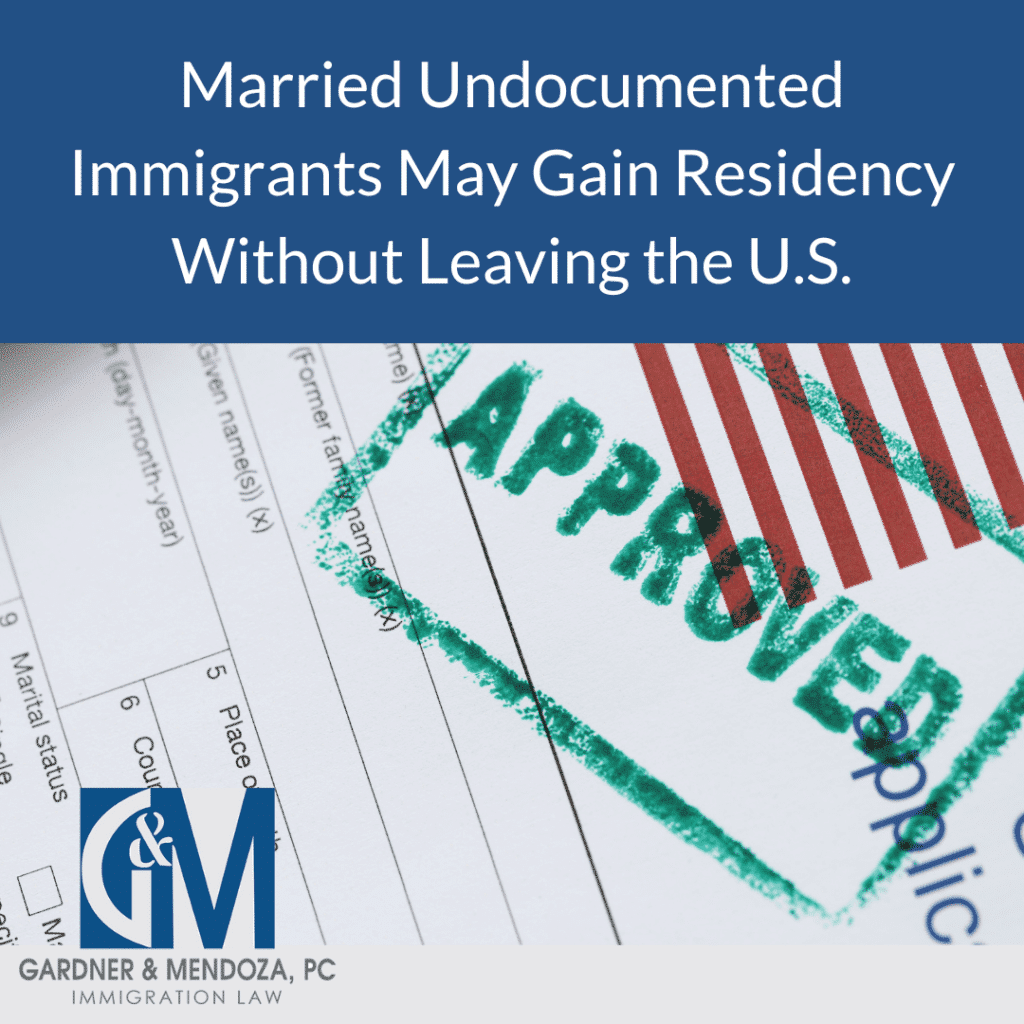
Undocumented immigrants who are married to U.S. citizens stand to gain a path to permanent residency and protection from deportation under a sweeping new immigration reform proposed by the Biden administration.
The Department of Homeland Security detailed the new process to “promote family unity in the immigration process” as CD on June 17. As family immigration lawyers we are excited about a change that would allow thousands of immigrants to adjust their status without having to leave the United States. Those who stand to benefit from this process have lived in the United States for over a decade but face uncertainty about their future under the existing law.
The new proposal known as “Parole in Place,” promises to open up a pathway to permanent legal status and even U.S. citizenship for some undocumented immigrants through the removal of an obstacle in U.S. law that prevents people who entered the U.S. illegally from obtaining green cards without leaving the country. The action will provide legal status and protections for about 500,000 American families as well as 50,000 noncitizen children of immigrants under the age of 21 whose parent is married to a US citizen.
Biden described the change as a “common sense fix” to a cumbersome immigration system. He said spouses of undocumented immigrants currently have to return to their home nations to apply for legal status and live in fear of deportation. “They have to leave their families in America with no assurance that they will be allowed back into the United States,” he said.
The Biden administration also plans to streamline the process for so-called DREAMers and other undocumented immigrants to obtain waivers that would make it easier for them to apply for temporary visas, such as H-1B visas for highly skilled workers. The DREAMers were brought into the United States as children. Many are protected under the Deferred Action for Childhood Arrivals (DACA) program.
DHS states it will more efficiently process some employment-based nonimmigrant visas for eligible individuals, including DACA recipients and undocumented applicants, who have graduated from an accredited U.S. institution of higher education.
Are you Eligible for Parole in Place?
DHS estimates that about 500,000 noncitizen spouses of U.S. citizens may be eligible for Parole in Place. On average, these noncitizens have lived in the United States for 23 years.
To be considered on a case-by-case basis for the new process you must:
- Live in the United States without parole or admission;
- Have been continuously present in the United States for at least 10 years as of June 17, 2024; and,
- Be legally married to a U.S. citizen as of June 17, 2024.
Applicants for Parole in Place must have “no disqualifying criminal history” and not pose a threat to national security or public safety, according to the notice.
Can Children of Recipients Qualify for Parole in Place?
Yes. The Department of Homeland Security says children of applicants who are not citizens may also be considered for parole if they are physically present in the country without admission or parole and are in a qualifying stepchild relationship to a U.S. citizen as of June 17, 2024.
What is the Application Process for Undocumented People Married to U.S. Citizens?
The DHS will detail the process over the next few weeks. Applicants should file a form with United States Citizenship and Immigration Services (USCIS) along with supporting documentation to show they meet the three main requirements and pay a yet-to-be-disclosed fee. A notice in the Federal Register giving more details will be published in the “near term.”
Your experienced immigration attorney will advise you on when to apply under the new process. USCIS will reject any filings or individual requests it receives before the date when the application period begins later this summer.
USCIS will determine on a “case-by-case basis” whether an applicant is eligible for Parole in Place. The department will consider the requestor’s previous immigration history, criminal history, the results of detailed background checks and public safety, and national security vetting, as well as all other relevant information to prevent potential fraud.
Talk to an Experienced Immigration Attorney About Parole in Place.
The prospect of a path to permanent residency or even citizenship for undocumented immigrants married for over a decade to U.S. citizens is to be welcomed. However, the program faces many uncertainties and is likely to be complicated. It may be subject to a legal challenge from opponents. You should contact an experienced immigration lawyer to check if you may be eligible and improve your chances of success. Please call Gardner & Mendoza at (757) 464-9224 for assistance.